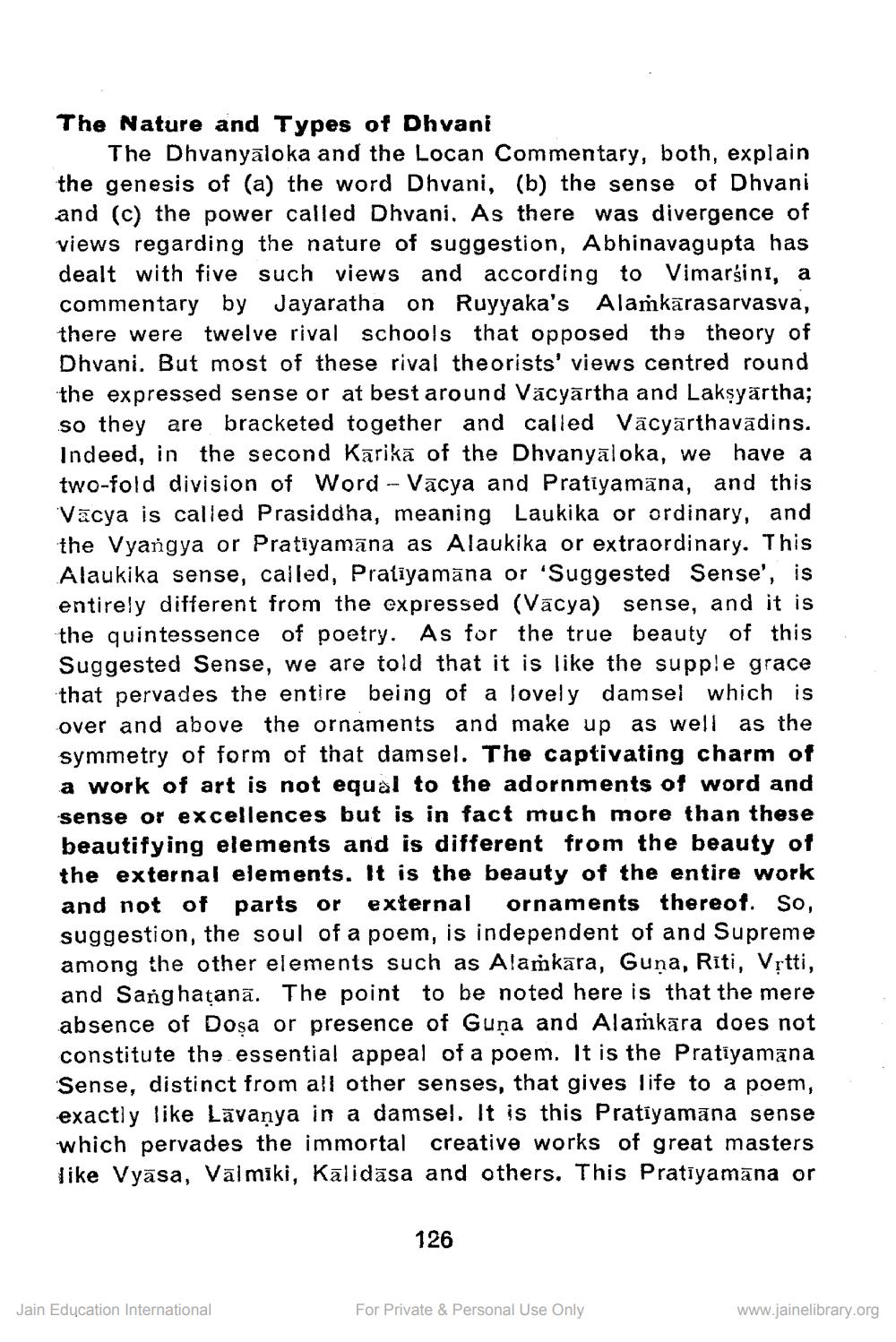________________
The Nature and Types of Dhvani
The Dhvanyaloka and the Locan Commentary, both, explain the genesis of (a) the word Dhvani, (b) the sense of Dhvani and (c) the power called Dhvani. As there was divergence of views regarding the nature of suggestion, Abhinavagupta has dealt with five such views and according to Vimarsini, a commentary by Jayaratha on Ruyyaka's Alamkarasarvasva, there were twelve rival schools that opposed the theory of Dhvani. But most of these rival theorists' views centred round the expressed sense or at best around Väcyartha and Lakṣyärtha; so they are bracketed together and called Vacyärthavādins. Indeed, in the second Karika of the Dhvanyaloka, we have a two-fold division of Word - Vacya and Pratiyamāna, and this Vācya is called Prasiddha, meaning Laukika or ordinary, and the Vyangya or Pratiyamāna as Alaukika or extraordinary. This Alaukika sense, called, Pratiyamāna or 'Suggested Sense', is entirely different from the expressed (Vacya) sense, and it is the quintessence of poetry. As for the true beauty of this Suggested Sense, we are told that it is like the supple grace that pervades the entire being of a lovely damsel which is over and above the ornaments and make up as well as the symmetry of form of that damsel. The captivating charm of a work of art is not equal to the adornments of word and sense or excellences but is in fact much more than these beautifying elements and is different from the beauty of the external elements. It is the beauty of the entire work and not of parts or external ornaments thereof. So, suggestion, the soul of a poem, is independent of and Supreme among the other elements such as Alaṁkāra, Guṇa, Riti, Vrtti, and Sanghatana. The point to be noted here is that the mere absence of Dosa or presence of Guna and Alamkara does not constitute the essential appeal of a poem. It is the Pratiyamāna Sense, distinct from all other senses, that gives life to a poem, exactly like Lavaṇya in a damsel. It is this Pratiyamāna sense which pervades the immortal creative works of great masters like Vyasa, Valmiki, Kālidāsa and others. This Pratiyamāna or
Jain Education International
126
For Private & Personal Use Only
www.jainelibrary.org




